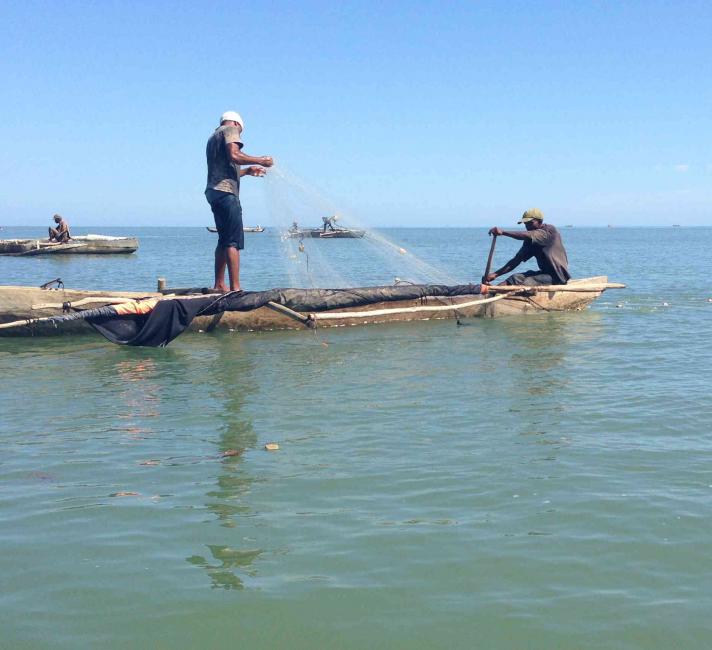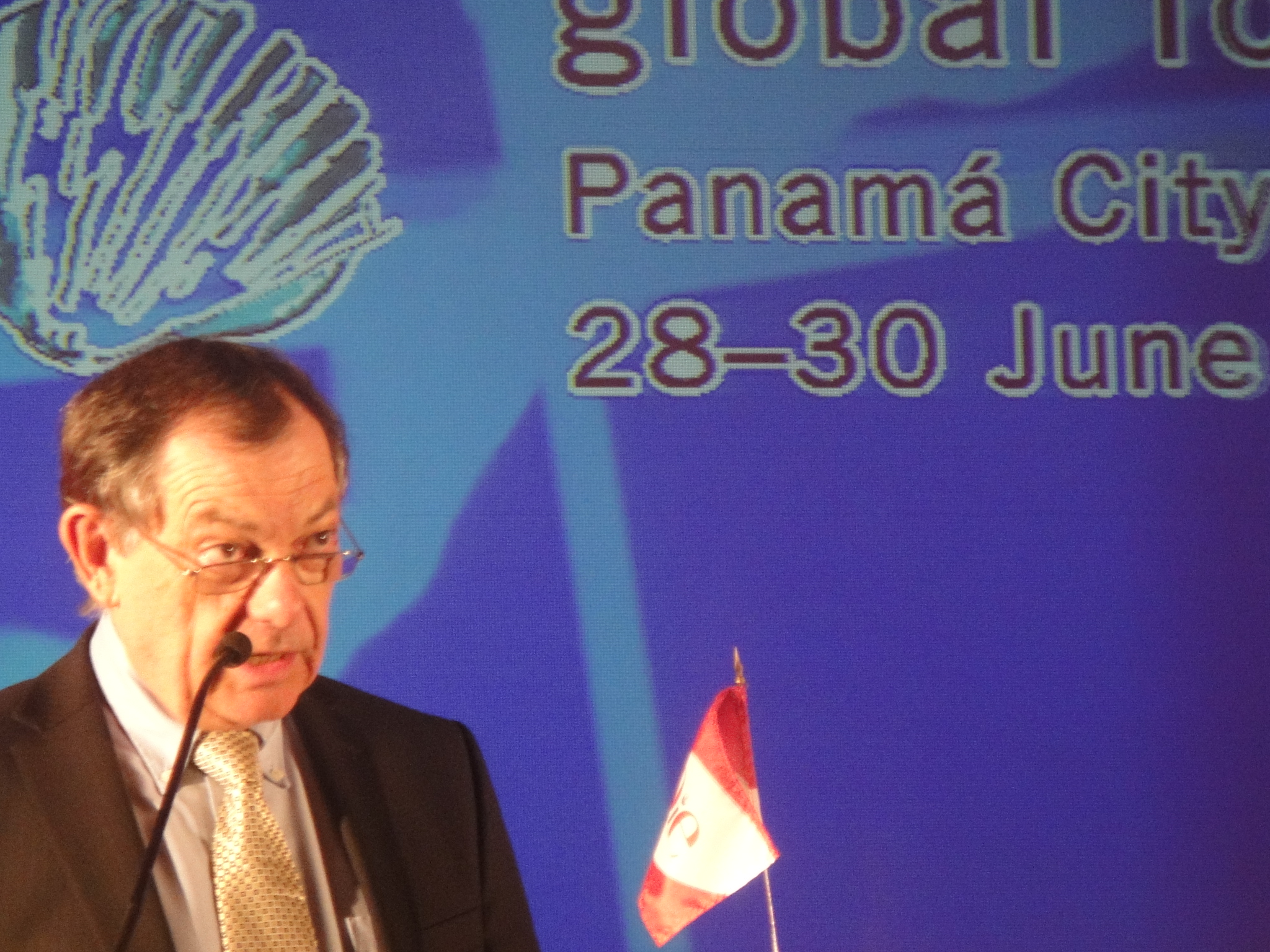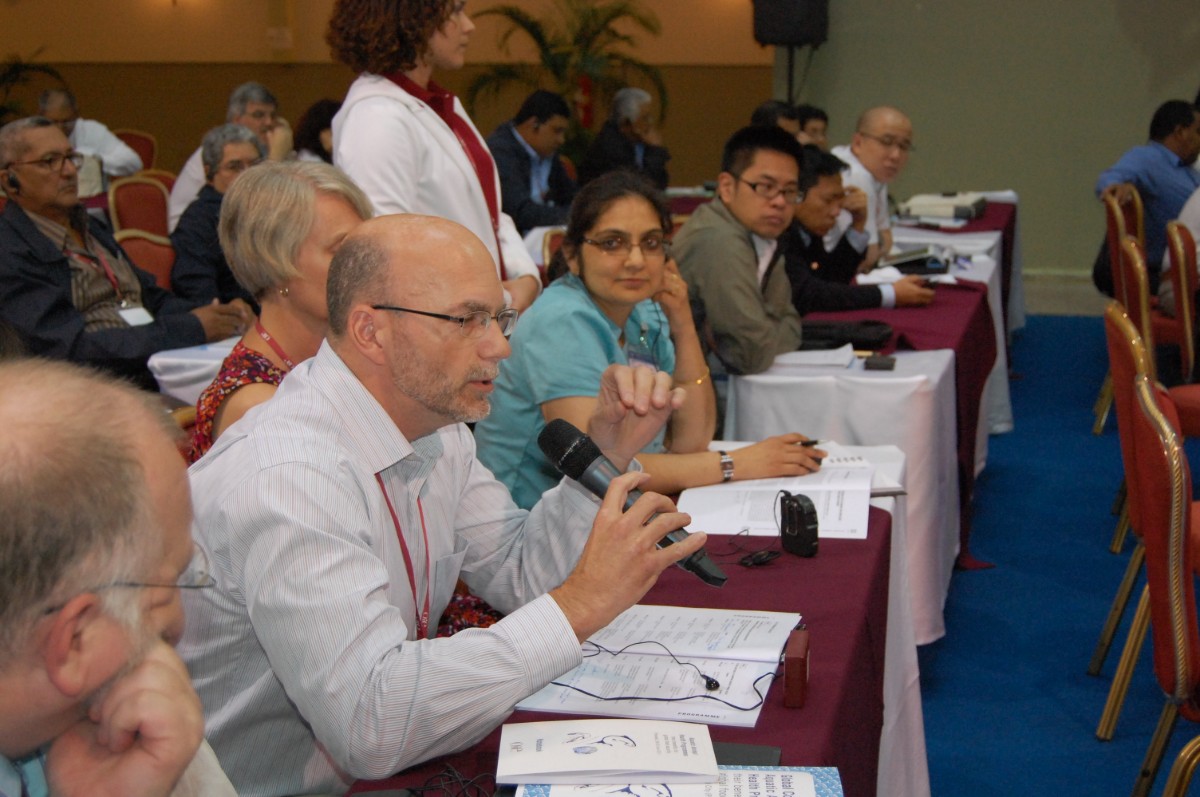
The World Organisation for Animal Health (OIE) Global Conference on Aquatic Animal Health Programmes demonstrated the important contribution of aquatic animal health policies and programmes, as well as of OIE standards and guidelines to securing food security globally.
Opening speech by the OIE Director General, Dr Bernard Vallat. Picture (c) P. Bastiaensen (oie) 2011
Commenting on the event, Dr Bernard Vallat, OIE Director General said: “The world demand for animal proteins is constantly increasing; we must come up with sustainable solutions. Proteins derived from aquaculture are one of the solutions for feeding the planet. However, disease outbreaks in aquatic animals can cause catastrophic losses while the legislation and human and financial resources in most developing and in-transition countries are still inadequate to prevent these losses. This is why we must work hard to improve policies and programmes addressing prevention and control of aquatic animal diseases, and to convince the international community to support more cooperation programmes.”
The event was successful in addressing a series of related key issues:
Participants also identified practical steps to help manage the risks arising from aquaculture to public health, including food safety and the environment.
They discussed practical guidance on how countries, in particular developing countries, can mobilise governments and donors with the goal of improving disease control programmes through strengthening Veterinary Services and other competent authorities to meet the OIE standards for good governance, disease prevention and control and appropriate production practices.
Held in Panama from 28 to 30 June 2011, the conference served to underpin efforts of the OIE and its partners in promoting early detection and rapid response to aquatic animal disease outbreaks, including the role and responsibilities of the public and private sector, including farmers, veterinarians and other stakeholders. Participating speakers represented national Veterinary Services and other Competent Authorities, international organizations, as well as independent aquatic animal health experts and scientists.
Although the subject of the conference (aquaculture and food security) was highly relevant to the African continent, only 9 countries made it to the conference, in part due to the stringent immigration requirements from host country. The following countries were represented : Burkina Faso,
Dem. Republic of Congo, Madagascar, Mauritius, Mozambique, Namibia, Seychelles, Togo and Uganda.
The African countries present, in particular those in southern and eastern Africa, submitted a draft recommendation, including an appeal for technical and financial assistance to tackle the epizootic ulcerative syndrome (EUS) issue on the continent before it spreads from its current location in southern Africa to other parts of Africa, and other river eco-systems.
Comments from Dr. Larry Hammell of the OIE Collaborating Centre in Canada. Picture (c) P. Bastiaensen (oie) 2011
In the margin of the meeting, agreement was reached with Mozambique and Madagascar on the development of a pilot project on the application of the compartmentalisation concept for the export of shrimps to the EU, to be supported by the OIE Sub-Regional Representation for Southern Africa, the OIE Aquatic Animal Health Standards Commission and the EU’s DG-SANCO.
All pictures © OIE SRR Central America (oie) 2011, unless mentioned otherwise.


